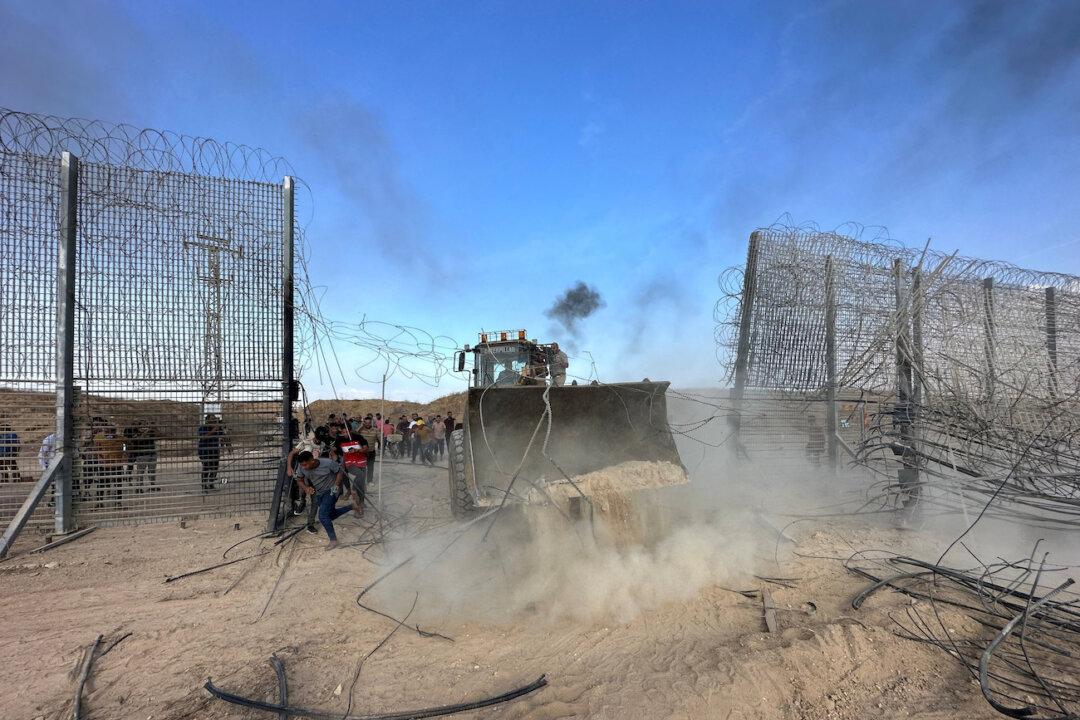The Israeli government is demanding answers after a viral report alleged that Gaza-based photojournalists working for major news networks may have had prior knowledge of Hamas’s attacks in Israel and even possibly joined the terrorists in order to capture their carnage with a camera.
In an article published Tuesday, New York City-based press watchdog Honest Reporting questioned how some photographers were able to be at the right place and time when Hamas terrorists used armored bulldozers to burst through barriers separating Gaza and Israel on the early morning of Oct. 7.





